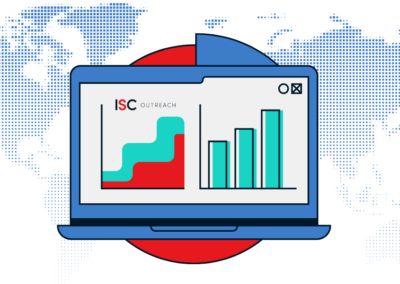Many questions were asked as a paradigm during the webinar. Here are our responses:
Q: Do you see this as a paradigm shift in the way schools will use resources, as many have now been forced to deliver online learning? Will this be the time that they start to move in significant numbers away from learning from the book? In answering this can you say if you think this shift will go into primary?
A: Digital resources will not completely replace printed books, particularly in the primary years. And the success of online solutions are dependent on accessibility to hardware by both teachers and students. But where this is readily available, there is likely to be a shift. Some teachers and school leaders who have not had much experience of online solutions until now, will have realised the possibilities that online learning and online resources can give to learners of all ages, and they may be more confident about using software solutions in the future. For international schools, where the logistics of ordering and accessing printed classroom materials can be costly and challenging, the experience of relying on online resources may have shown them how accessible and adaptable online resources can be. This will very likely influence selection of teaching and learning resources in the future.
Q. What are top challenges that overwhelm international schools in this crisis in terms of finance, opportunity cost, or added liability?
A. There are many challenges that include delivery and pace of learning, supporting teachers working within an unfamiliar learning environment, ensuring differentiation, meeting the needs of parents, ensuring wellbeing of all (students, staff and leaders) during a time of crisis and challenge, safeguarding of students while learning online in a home environment, and the continued employment of support staff.
Q. How are extracurricular and after school activities being dealt with by international schools?
A. The priority for international schools has had to be to achieve the outcomes of the curriculum which has taken extensive energy, focus and additional time of educators. However, most teachers and schools are encouraging children and parents to follow a common school timetable and to allocate periods of the day carefully to ensure that time is available for children to pursue other interests, activities that can get them outdoors or off technology as much as possible, and to have fun and relax too. Some schools are sharing extracurricular activities and challenges for their students. Many school are offering online movement classes that can be done anywhere and anytime. Music lessons are proving popular and individual lessons are taking place via skype or other online platform. In some cases, PTA groups are stepping in to share support in this area.
Q. How are schools ensuring that the requirements bestowed to students are reasonable and doable by all students? This is particularly relevant as every learning is done at home.
A. Schools are responding to this in various ways. Many schools are asking students to keep to a daily schedule that includes virtual homeroom groups or assemblies to begin the school day, and with clearly defined breaks, lunchtime, physical ed activities, and end of school time. Many schools are working to learning outcomes, albeit simplified at times, and having to evidence the quality of teaching. A few schools are requiring one-to-one time for teacher and each student in order to assess the need for differentiation. Some schools are encouraging feedback from parents via a parent portal or dedicated app. And many international schools have established communication channels for students, and relevant communication channels for parents to ensure that students nor parents feel isolated.
Q. Have you had any feedback from schools about parents refusing to pay fees whilst they are closed?
A. There are some international schools that are facing this challenge. In the UAE, Europe and China, many schools have discounted their fees. However, most good international schools are providing online learning with ongoing support and facilitation from class teachers following clearly defined outcomes.
Q. What safeguarding policies have schools put in place to support staff and students to remain safe online?
A. Some international schools that already deliver blended or online learning have clear policies in place. For those schools that do not, there are some excellent free safeguarding policies available through the Council of International Schools and ICMEC (the International Centre for Missing and Exploited Children) that are guiding many international schools right now.
Q. We are offering a safeguarding software to schools free of charge until September. Do you think this could be helpful for international schools now they are working away from the school campuses?
A. Absolutely this could be helpful – but only if it is relevant for international schools. ISC Research may be able to help you spread the word to international schools ([email protected]). You could also share through any international school associations of which you’re a member. The ECIS page is https://www.ecis.org/resources/ and the COBIS page is https://www.cobis.org.uk/schools/useful-links/school-closure. Social media routes are also being well utilised by educators right now to access free resources, practical advice and best practice. LinkedIn or Twitter are popular with senior leaders, and LinkedIn or Facebook groups are the most popular social media used by teachers for professional sharing.
Q. Why are some schools not digitally ready and why are they struggling to support distant learning? What do they need to achieve this?
A. Not all international schools have the hardware, infrastructure or teacher skills to have yet begun to implement distance learning and not all families have access to a computer. For some schools it has been about equity, for others it has been priority.
Q. In terms of positives, our schools in China have reported that this current enforced closure has actually been the best CPD they have had for years on using online and blended learning effectively.
A. Yes! For many schools and teachers, this is the opportunity they needed to take a deep dive into online learning. Some teachers have had to learn really quickly, but there are some incredible stories of success which, in time, we hope will be shared with others as great practice.
Q. We are a small company providing support on MIS and remote data management, we are finding it hard to contact some of the schools we are currently working with. We are wondering how best to reach schools that are currently closed?
A. Having direct access to the right point of contact within the school is very important. Headteachers will have to prioritise the immediate needs of their staff, parents and students right now so your communication will need to be directed to the appropriate person, in your case the Head of Technology or equivalent role. ISC Research may be able to help you with this. You can send an email directly to [email protected]. If you have a broader message that might be relevant for several schools, you might be able to share the details through your international school association or via popular social media routes e.g. LinkedIn or Twitter (if you wish to connect with senior leaders), or LinkedIn or Facebook groups (if you wish to engage teachers).
Q. We are able to offer our science learning platform for free to all schools overseas. I heard what Colin (Bell) said about not bombarding schools with lots of marketing etc, but we are genuinely making our resources free, not just for now but forever, so there is no catch, and I don’t want schools to miss the opportunity. We are funded by industry sponsors, and have a range of different international curricula available for science. I am just interested in how ISC or other organisations may be able to make schools aware of free resources which minimise work for teachers, reduce the pressure on working parents, and provide pupils with high quality resources to use independently?
A. ISC Research and the associations can offer a range of different routes for you to reach out to international schools at this time. Some associations, like ECIS, are compiling lists of free resources for schools. ISC Research has its data platform ISC Online which offers various ways to connect with all international schools and to engage with department heads and specific roles within schools. In addition, the ISC Research field-based team are very engaged with the schools in their regions and are followed on LinkedIn or Twitter by many school leaders that they work with. As always, it is necessary to use various routes to market to ensure marketing success.
Q. How do we share our free home learning resources through the ECIS platform?
A. Contact Georgie McIntyre at [email protected]
Q. Everyone is talking about building resilience of students and staff at the moment, what supports do schools need in this area moving forward?
A. A wider focus around student and staff wellbeing is so important. It is already recognised as an area requiring more specialist support, but coronavirus has escalated this need. The advice of Education Psychologists, particularly those with crisis expertise, will be valued at this time. In addition, other immediate requirements for students and staff right now are wider empathy from the community, flexibility around the school day structure, and rigorous resources that provide immediate solutions with no implementation requirements. Longer term, many international schools will need solutions and support to introduce a blended learning approach.
Q. What will the impact be on schools that are currently being built and due to open in the fall or in a year or two?
A. ISC Research will provide updates on the impact of coronavirus for future school developments once details are available.
Q. Are virtual conferences being offered free of charge?
A. Most virtual conferences, such as the ECIS Leadership Virtual Conference, will charge a relatively small fee to help cover the software costs.
Q. Will you have a list of all interesting virtual conferences on you website?
A. ISC Research shares details and links to all conferences and events relevant for international schools on its calendar on ISC Online. This includes all virtual events too. For more information contact [email protected]
Sincere thanks go to Kam Chohan and Georgie McIntyre of ECIS, and Colin Bell of COBIS, who joined me on the webinar. For a link to the full recording of the webinar, contact [email protected]
If you would like to join us on our next webinar for education suppliers, it takes place on 21st April: How international schools in East and South-Eastern Asia are responding to the implications of coronavirus. Register now.
Diane Glass is the Commercial Director at ISC Research. You can contact her directly at [email protected] or follow her on LinkedIn https://www.linkedin.com/in/diane-glass-40055926/



